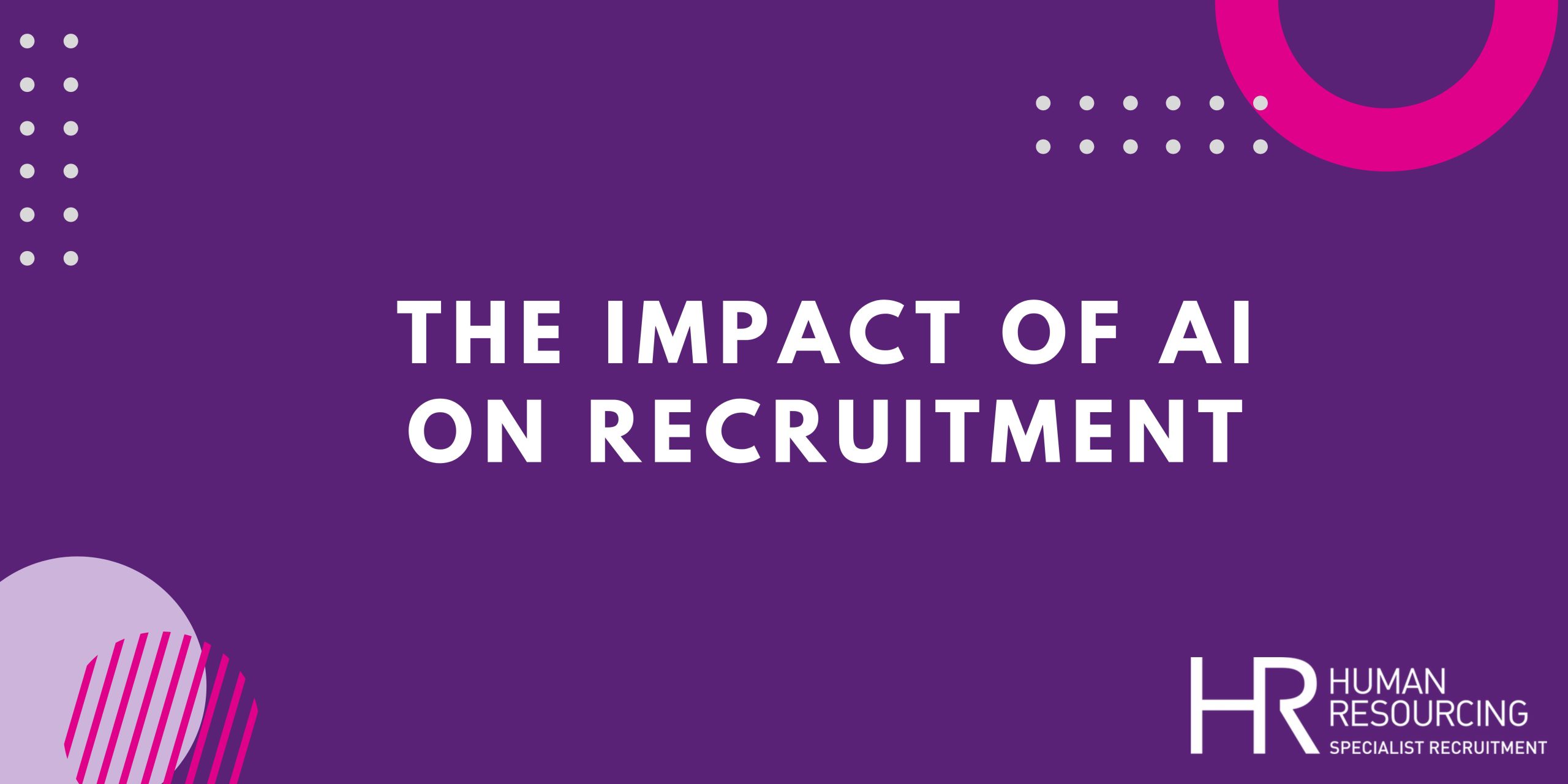It is impossible to ignore the topic of Artificial Intelligence AI. It’s revolutionised many industries and its full potential remains to be seen.
AI is rapidly transforming the recruitment industry, with many businesses now using AI-powered tools to automate tasks, screen candidates, and make hiring decisions. AI has the potential to improve the efficiency and effectiveness of recruitment, but there are also some potential risks and concerns.
This blog post explores the impact of AI on recruitment and discusses the advantages and challenges that it may have on hiring processes in the future.
Pros of Using AI in Recruitment
- Efficiency: AI can automate many of the manual, time consuming tasks involved in recruitment. There are tools that can swiftly sift through numerous CVs, applications, and candidate profiles, enabling recruiters to focus their efforts on more strategic tasks such as building relationships with clients and candidates and developing talent pipelines.
- Effectiveness: AI driven recruitment tools can be trained to analyse candidate data, job requirements, patterns and trends, meaning it can quickly identify candidates who match the criteria which may not stand out to the human eye. Furthermore it can help promote fairer hiring practices by basing candidate selection on objective criteria rather than subjective judgements.
- Diversity: As mentioned previously, AI can help to improve diversity in the workplace by reducing human bias in the hiring process. For example, technology can be used to screen CVs without seeing a candidate’s demographic information which allows all applicants to be considered fairly, regardless of their gender, age, ethnicity or any other potential conscious or unconscious bias.
Cons of Using AI in Recruitment
- Bias: AI is only as good as the data it is trained on. If the data is biased, then the AI will be biased too. This can lead to discrimination against certain groups and hindering diversity and inclusion efforts. An example of this was seen in 2017 when Amazon pulled an AI hiring system due to allegations of bias against women.[1] It is crucial to continuously monitor and mitigate algorithmic bias to ensure fair and ethical outcomes.
- Removes the human element: AI can lead to a lack of human interaction and personalisation. Candidates may feel disconnected or undervalued if their interactions with recruitment platforms are solely automated. Building relationships, assessing whether a candidate is a cultural fit, and considering soft skills are aspects that still require human judgment and intuition. It’s important to find the balance between AI-driven efficiency and maintaining a personal touch.
- Limited Contextual Understanding: AI algorithms can struggle to fully grasp the nuances and context of certain roles, industries, or specific job requirements. They rely on historical patterns and existing data, which may not always capture the evolving needs and intricacies of certain positions.
Whilst AI can streamline some elements of the recruitment processes through automation, there are lots of elements that simply require the human touch. It’s not capable of making complex judgments or interpreting nuanced information in the same way that humans can.
With careful selection and monitoring, AI hiring tools can enhance the role of a recruiter but will certainly not replace them.
Human Resourcing has been connecting HR talent with leading employers for more than 21 years. Our personalised service is what sets us apart. We build long lasting relationships and go above and beyond to ensure we deliver.
If you’re in the market for a new role or want support in finding top talent for your business, drop us a message for a confidential chat.
[1] https://www.bbc.co.uk/news/technology-45809919

